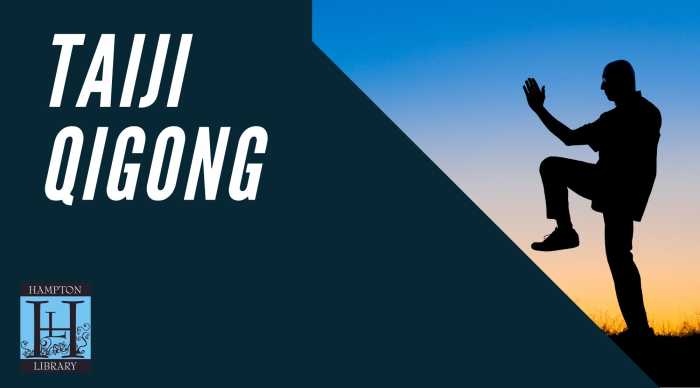Levittown School Serves as a Model
For Educating Autistic Children
From Monday, April 5 through Friday April 9, volunteers from the community lent a helping hand to The ELIJA School in Levittown for Autism Awareness Week. They painted the inside and outside of the building, weeded the flowerbeds, planted flowers and removed clutter, all in the name of philanthropy and community building.
Debora Harris and Nicole Dibra founded The ELIJA School in 2006, a school dedicated to improving the quality of education for children with autism. The school, whose name stands for Empowering Long Island’s Journey Through Autism, held its week-long event to spruce up the building and grounds but also to connect with the community and reach out to residents.
“The whole purpose of this is to build bridges with the community,” Harris said. “So we pounded the pavement and got the community involved.”
Starbucks, Boy and Girl Scouts, Home Depot, Wal-Mart, Target, Division Avenue Deli and Two Brothers Pizza are just some of the businesses in the community that donated time, food and resources, Harris said. They’re hoping to make the spruce-up an annual event.
The weeklong event served as an introduction to the school for some and a chance to know the school better for others.
Harris, also a mother of an 11-year-old autistic son in the school, said the school takes in children “that other schools give up on.” Dibra’s son is also an 11-year-old boy with autism.
When the two met several years ago, they were both very frustrated with the services their sons were getting.
They came across a lot of professionals from their own research, Harris said, and brought an autism expert to speak to them and their families. The number of people interested in hearing that first presentation grew to 150 and the two decided to bring in a speaker for a conference every month or so after that. Soon after, they started ELIJA Foundation in 2001 with the goal of educating parents about autism.
“We did a full-day conference where people were able to network with and create a database of people,” Harris said.
In 2006 people suggested that Harris and Dibra open a school for autistic children, so they did.
Using Alpine Learning Group in New Jersey as their model, the two women consulted co-founder and Executive Director Dr. Bridget Taylor who they used as a consultant.
Mike Giangregorio is the president of ELIJA’s school board and is also the father of Nicholas, a 9-year-old, non-verbal autistic boy. He said what he learned from Harris and Dibra helped him immensely with raising his son.
“I would not have been able to help my son had it not been for them,” he said.
The two women asked him to serve on the board and he agreed because of the commitment they made to his son.
“The public school system can’t properly handle the kids; the ratio needs to be one to one,” Giangregorio said. “There are children in here who have made remarkable improvements.”
The school has 12 children and 14 teachers. The teaching is one-on-one with a couple of extra teachers on hand. There are four children to a classroom, four teachers and the children rotate through the teachers in that classroom.

The school requires their teachers to have at least a bachelor’s degree, if not a master’s, but more importantly, Harris said, is that they have had interaction with autistic kids, have a certain high energy personality, are willing to deal with challenging behaviors and are willing to learn.
“You have to be good with working with this population,” she said.
Harris said the school will teach the child until they’re 21 but try to cap admittance at age 8 or 9 if they can.
“Parents try and try and try and by the time their child is 8 or 9, they’ve tried everything and they’re at their wit’s end,” she said.
A very important factor in caring for and teaching autistic children is making sure the instruction is followed through at home with the families, Giangregorio said. By maintaining a constant enforcement of what they’re learning, autistic children have the potential to interact with their families and in social situations similarly to children without autism.
Without a partnership between the school and the family it doesn’t work, Giangregorio said.
The ELIJA School serves as an educational model for school districts, Harris said. They work with school districts, setting guidelines for public schools to follow.
Although ELIJA, and other schools like it, gives advice and instruction to the much larger school districts, it has not been able to get state certification and it forces public schools to absorb the autistic population, Harris said.
According to Harris, the biggest difference between a public school’s program for autistic children and that of ELIJA’s is consistency in the teaching and course itself.
“They need consistency and repetition,” Harris said. “There’s such a vast difference in quality because of consistency.” High levels of supervision are also necessary for autistic children, she said.
The state functions in a 6-1-1 ratio where one teacher and one assistant teach six children.
While some schools are getting a good grasp on what they need to better teach autistic children, some still don’t understand that having a master’s degree in education isn’t enough to successfully teach an autistic child, Harris said.
“Applied Behavior Analysis is the only thing that works,” Harris said. “Schools can’t always utilize the teaching strategy effectively.
Many school districts find themselves at a loss when it comes to handling autistic students, especially those children with behavioral issues. Harris said although there’s no requirement that public school teachers be trained in ABA, if the district’s special education director knows what to look for they can have a quality program.
Board certified behavior analysts are important to have when teaching autistic children, Harris said, because they are trained in dealing with emotionally disturbed and violent children, with autism and other disorders.
“We are so open to helping the districts, whatever we can do to help them, we will,” Harris said. “Levittown is a very supportive district; the school district trusts us and seeks us out for information.”
“The thing that holds kids back is the behavior that teachers can’t handle,” Harris said.
Lynne Koufakis said ELIJA School helped her son Jake, now 13 years old.
“From what I’ve seen, all the kids who have been here have all done well,” Koufakis said. She was one of the first parents to enroll her child in the school when it opened four years ago.
“It was a leap of faith,” she said. “They were willing to take him; they’ll do what they can do to help him,” she said. “They’re not afraid to help.”
“It’s for low functioning autistic kids and whose parents want to help their kids,” Koufakis said. “It’s a wonderful place to go.”
































